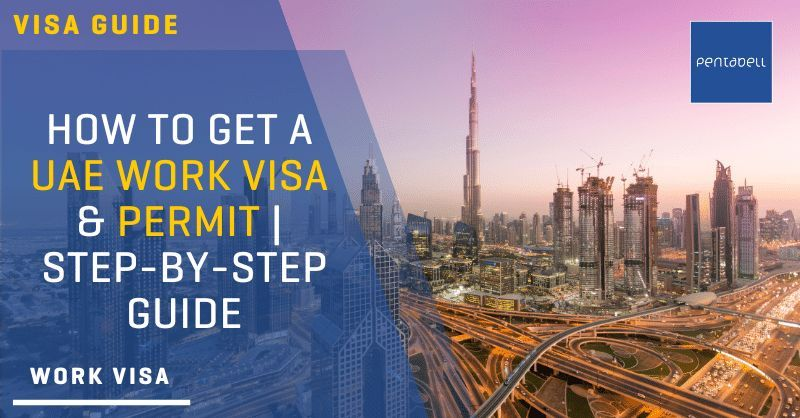
Dubai, the shining gem of the United Arab Emirates (UAE), continues to attract thousands of professionals from around the world every year. Its tax-free salaries, luxurious lifestyle, and endless job opportunities make Dubai one of the most desired places to work. But before you pack your bags for this city of dreams, there’s an important process you need to understand—getting a Dubai work permit.
Whether you are a first-time job seeker or planning to switch companies in Dubai, this guide explains how to apply for a Dubai work permit in simple and clear steps. Let’s also explore the latest updates, requirements, and helpful tips to make your application smooth and successful.

A Dubai work permit, also known as a UAE Employment Visa, is an official document issued by the UAE Ministry of Human Resources and Emiratisation (MOHRE). It allows foreign nationals to legally live and work in Dubai. Without this permit, working in Dubai is illegal and can lead to fines, deportation, or legal trouble.
Dubai work permits are typically sponsored by employers. So, if you want to work in Dubai, you must first have a valid job offer from a Dubai-based company.
Any foreign national (non-UAE citizen) who wishes to work in Dubai must apply for a work permit. This includes people from India, Pakistan, the Philippines, the UK, Europe, the USA, Africa, and other parts of the world.
However, citizens of Gulf Cooperation Council (GCC) countries (like Saudi Arabia, Oman, and Qatar) have slightly different procedures but may also require formal employment approvals depending on their profession.
To apply for a Dubai work permit, you must:
Here’s how you can apply for a Dubai work permit smoothly:
The first and most important step is to secure a job in Dubai. The company offering you a job will become your sponsor and initiate the permit process on your behalf.
Tip: Always make sure the company is legally registered and reputable in Dubai.
Your employer will submit a request to the Ministry of Human Resources and Emiratisation (MOHRE) for initial work permit approval. Documents usually required are:
Once MOHRE grants approval, your employer receives an Entry Permit (Pink Visa) which allows you to legally enter Dubai for employment purposes.
Once the Entry Permit is issued, you can travel to Dubai. The Entry Permit is valid for 60 days, during which the rest of the process must be completed.
All foreign workers must undergo a mandatory medical test at approved health centers in Dubai. The tests include:
If you pass the test, you will receive a Medical Fitness Certificate.
Your employer will also help you apply for an Emirates ID (resident identity card), issued by the Federal Authority for Identity and Citizenship (ICA). Biometric data like fingerprints and photos will be collected at an official ICA center.

Once your medical and Emirates ID process is done, you’ll get your Labour Card, which includes details like your employer’s name, your job position, and your work permit validity.
You and your employer must also sign a formal employment contract, which gets registered with MOHRE.
Finally, your residence visa (work visa) will be stamped on your passport. This visa allows you to live and work in Dubai legally for a period ranging from 1 to 3 years, depending on the contract and company.
The total cost of a Dubai work permit depends on the company’s classification and the worker’s skill level. However, as per recent estimates:
Note: Most of these fees are covered by the employer.
Typically, the Dubai work permit process takes 2 to 4 weeks from job offer to final visa stamping. However, delays may occur if documents are missing or incomplete.
Getting a Dubai work permit may seem like a long process, but with the right guidance and a reliable employer, it is straightforward and stress-free. Dubai offers unmatched professional opportunities, making this effort truly worthwhile.
Make sure you follow every step carefully, submit the correct documents, and always keep in touch with your employer during the process.
Read More:- Deyaar’s Latest Announcement Shakes Up the UAE Property Market
